Three years ago, Raleigh resident Stephanie Parrish learned her chronic back pain was the result of Scoliosis, a curvature of the spine that essentially means it's crooked. Her condition went from pain that bothered her while running to a condition that soon prevented her from walking for any prolonged period of time.
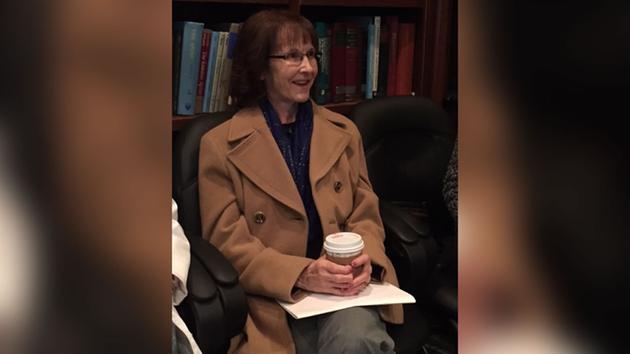
"I went through a series of cortisone shots, an epidural, and it was like having a headache in your whole body," Stephanie recalled.
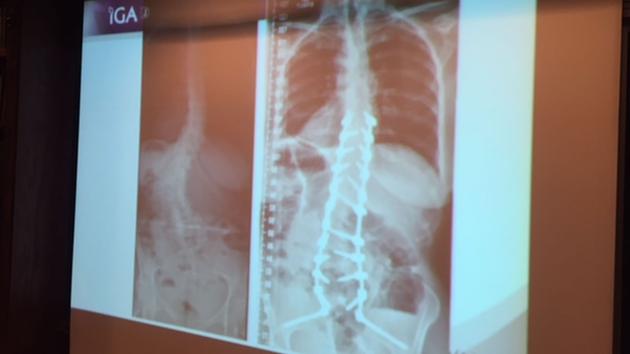
Eventually, she was referred to Isaac Karikari, MD, PhD, a neurosurgeon at Duke Medicine who is one of a handful of brain surgeons in the country also trained to treat complex scoliosis. Typically, this is a procedure that is performed by an orthopedic surgeon. But, Dr. Karikari was motivated to learn this specialized skill set in addition to becoming a neurosurgeon.
"During my training here, I had a chance to observe and follow some patients that had similar surgeries, and what really got me interested and more passionate about it was when I saw the patients back in clinic. I could tell that this surgery actually works. And this makes a huge difference in the lives of patients," said Karikari.
So, he took it upon himself to learn this complex surgery, and even spent a year in St. Louis studying directly under a person considered to be one of the best orthopedic surgeons in the world. Now, he's putting that training to use treating patients like Stephanie, as well as those with even more severe forms of Scoliosis, many of whom have undergone other failed surgeries before.
"This type of procedure is reserved for deformities or scoliosis that is very stiff, such that the only way to fix that is to essentially disarticulate the spine, so essentially cut the spine in half, and then attach it back together," Dr. Karikari said, explaining what makes this surgery different from others.
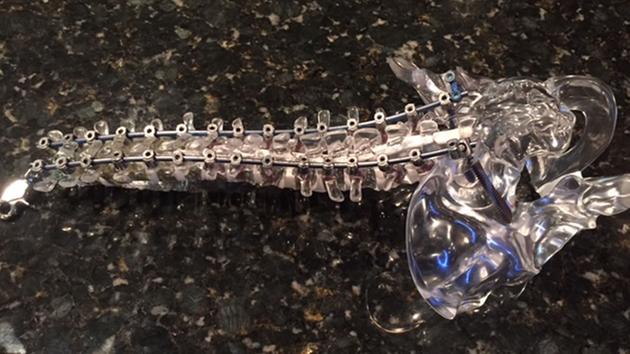
The procedure itself can take anywhere from 5 to 10 or more hours.
"Before we recommend surgery, we make sure that the patient's quality of life is being significantly impacted because the surgery for scoliosis is not trivial, it's quite extensive," he added, noting that, "Out of all the spine procedures we do, I have to say that Scoliosis surgery, perhaps, has one of the best outcomes in surgeries."
And now he is utilizing new technology to boost Duke's success rate with these surgeries. In addition to using intra-operative CAT scans during surgery, he and other specialists are turning to new software called IGA (Integrated Global Alignment) that is helping them to take some of the "guesswork" out of their surgery.
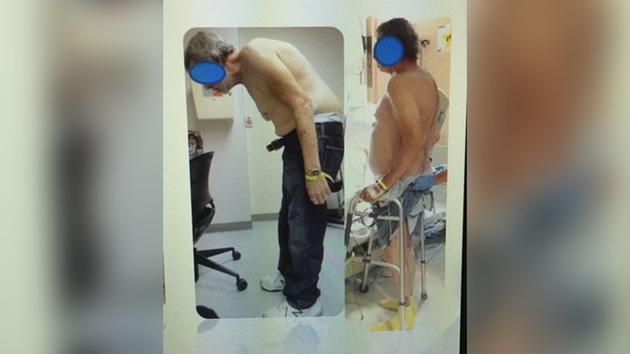
"This software allows us to really study the spine before the surgery when the patient is first seen in clinic. It allows us to really define what the patient's spinal alignment is, and more importantly at the time of surgery while we're operating in the operating room. It tells us exactly what we need to do to the patient's spine to get it in proper and perfect alignment, something that's never been available to us before."
As a result, surgeons work more efficiently and it's improving patients' outcomes.
For most patients, they're immediately able to notice results, some going from being permanently hunched over to finally being able to stand up straight. And for Stephanie, she's back to walking without pain and enjoying the activities her scoliosis once kept her from.
"I feel 1000% better, I can't tell you when I (last) felt this good," she said.
Source : ABC 11 , 26th Nov 2015

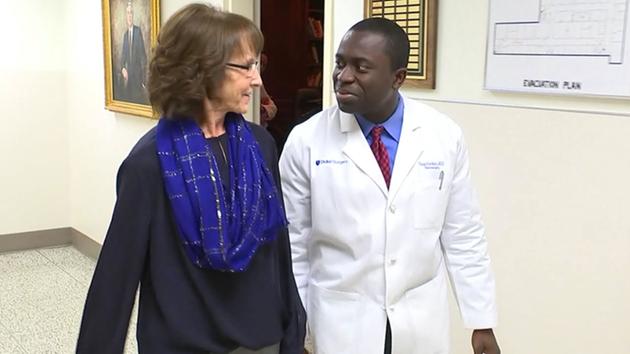
with new information. I have found it extremely useful.
ReplyDeletebuy online orthopaedic heat belt
Aw, this was a really nice post! I would like to thank you for the efforts you’ve put in writing this site. Best of luck for the next! Please visit my web site
ReplyDeleteRegards,
Scoliosis Disease in London
Thank you because you have been willing to share information with us. we will always appreciate all you have done here because I know you are very concerned with our.
ReplyDeleteRegards,
Scoliosis Spine in London